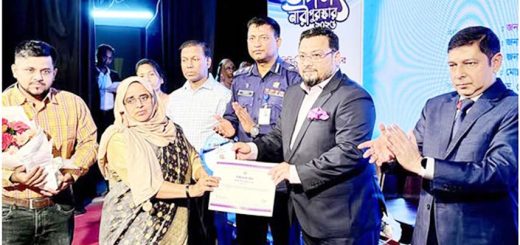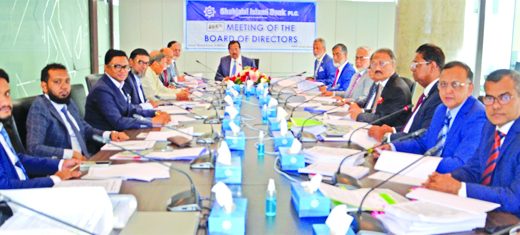Free press and the legacy of Manik Mia

Amid a turmoil political atmosphere worldwide, people constantly talk about freedom of media or press — a buzzing sound also in Bangladesh. In the context of the freedom of the press, Bangladesh is not yet on the list of the top 10 countries that create extensive restrictions on the freedom of mass media. But there is nothing to be complacent about that the country is close to the 18th position to pose a gag on press freedom. Here, our flow of decline is also quite startling. For so long we were going back one step, two steps at a slower pace but this time 10 steps at a time we have been back footed. Of all the countries around us in South Asia, there is no one below Bangladesh except Myanmar in respect of freedom of the press and mass media. Even the position of Bangladesh is below that of Pakistan. It is both greatly disappointing and shameful for the country.
Despite so much benchmark progress in economic development, why are we so far behind in the media freedom index? How much lower will it take Bangladesh in terms of freedom of the press? It is indeed a question of a big deal ever in recent times. It has been observed that the freedom of expression has greatly been restricted and reduced in the country. This recent observation about Bangladesh in mass media was highlighted in the recently published US State Department report on the human rights situation in the world. It is said that the journalists of Bangladesh have also closed themselves off from criticising the government for fear of harassment and torture. In addition, the government of Bangladesh is said to have often violated the provisions of the constitution of Bangladesh on freedom of expression and freedom of the press. International human rights organisations have remained vocal about the situation in Bangladesh for quite some time, but the country’s government has been rejecting it.
Democracy is one of the four principles of governance mentioned in Part-II of the Constitution of Bangladesh. Article 39 (1) of the Constitution of Bangladesh guarantees freedom of thought and conscience and Article 39 (2) guarantees freedom of the press and media. Discourse, discussion, expression, and unity are important components of strengthening democracy, and where the media is stronger, their democracy is stronger. Hence, true and impartial media practice can protect democracy and healthy democracy can keep media free and fair. In this way, independent media or press turns the best friend of any democratic government. By the way, freedom of expression and the freedom of the press is considered an indicator of a country’s true democratic status.
In the context of the free press, we must recall the renowned journalist and columnist Tofazzal Hossain Manik Mia.
I wish the young generation of our country could be familiar with his journalistic works, legacy, and achievements. Tofazzal Hossain, the eminent editor of The Daily Ittefaq, was a legend in the realm of journalism in Bangladesh. He was born in 1911 in Bhandaria village of Pirojpur district. Manik Mia is an undisputed ardent patriot and political journo in the history of East Pakistan, now Bangladesh. We still commemorate this proud hero with the deepest love and reverence.
After being a distinguished graduate, Manik Mia started working in the civil court of the Pirojpur district. During his service, he got a chance to get close to Muslim League leader-Hossain Shaheed Sohrawardy. At one stage, leaving his job he joined the Provincial Muslim League as an office secretary in Calcutta. Soon after, he felt an acute need for reaching political publicity and propagation to the mass people. So, he involved with the media through the ‘Ittihad’ published in 1946. That was his first step in the arena of journalism.
In 1948, the majority of Bengalis in East Pakistan took to the streets to demand their mother tongue – Bengali. Due to this language movement, the Bengalis’ fascination with Pakistan began to wane. The East Pakistan Awami Muslim League originated in 1949 as an opposition organisation to the Muslim League. In the same year, the weekly Ittefaq emerged as the newsletter of this political party. Mawlana Abdul Hamid Khan Bhasani became the official editor of the newspaper. In August 1951, Manik Mia took over the responsibility of the newspaper. In 1953, the weekly Ittefaq was converted into the daily Ittefaq under his editorship. At that time, the daily Ittefaq played a substantial role in the movement against Ayub Khan’s military tenure and aided in the collapse of the Muslim League in the 1954 general election.
Manik Mia used to write a regular sub-editorial under the pseudonym of ‘Musafir’ to make the voice louder against the exploitation and oppression of the Pakistani regime. Musafir was the name he used when he wrote his column ‘Rajnoitik Mancha’. No other column to this day has achieved that much popularity. His fearless truth-telling, unique political injunction, and love for the masses won the hearts of millions. His writing was a stimulating agent to resist subjugation and exploitation. One of the reasons behind his column’s popularity was his straightforward, fearless discourse and stringent comments about the injustices carried out by the government. His powerful column soon turned Ittefaq into a must-read with morning tea. His distinctive style, the gravity of the subject, and the way he presented the ongoing burning issues were intact till the day he died, making his writing a sophisticated genre itself and showing the path of free and fair print journalism.
Manik Mia was sentenced one-year imprisonment in 1959 for violating martial law. In 1963, he was arrested again and at the same time, the publication of the daily Ittefaq was banned and the New Nation Printing Press was confiscated. He was a brilliant example of objective journalism. Due to his condensed passion for democracy, the military government confiscated his property and even ruined it. He had been clamorous against the anti-people promptness of the Pakistani rulers.
Manik Mia was an uncompromising devoted political journalist. He used his mighty pen to establish the rights of the people and did not merely praise the party. Manik Mia’s idea about politics was distinct indeed. He was a politician but did not do party politics anymore. The Bengali nationalist ideology-based entire political parties on the track of democratic struggle got his undaunted support. He had adopted the philosophy of self-sacrifice for democracy and independence and was guided by a set of unparalleled principles and unique conscience. The feeling of his bona fide love for people was profound. Therefore, Manik Mia was considered a journalistic preceptor and a place of trust and reliance for many. Despite dire state of adversities, he never bowed down to authority. He never took the newspaper as a business but more as a medium of expression which led him to be the legendary remembrance.
He unmasked the dictatorship with his patriotic inclination. For unleashing the political criticism of the persecutory regimes his pen was just perfect. Manik Mia’s contribution and the role of Ittefaq in achieving independence are undeniable and ever remembered. Manik Mia is a legend in the history of Bangladesh’s print media. He is a torchbearer who has paved the way for the true ideological path of journalism. That is why, in his lifetime, he was turned into a trailblasing journalistic embodiment and a prominent democratic figure in the history of free, fair, and independent press journalism in the country ever.
(The writer is an academic and social worker).





